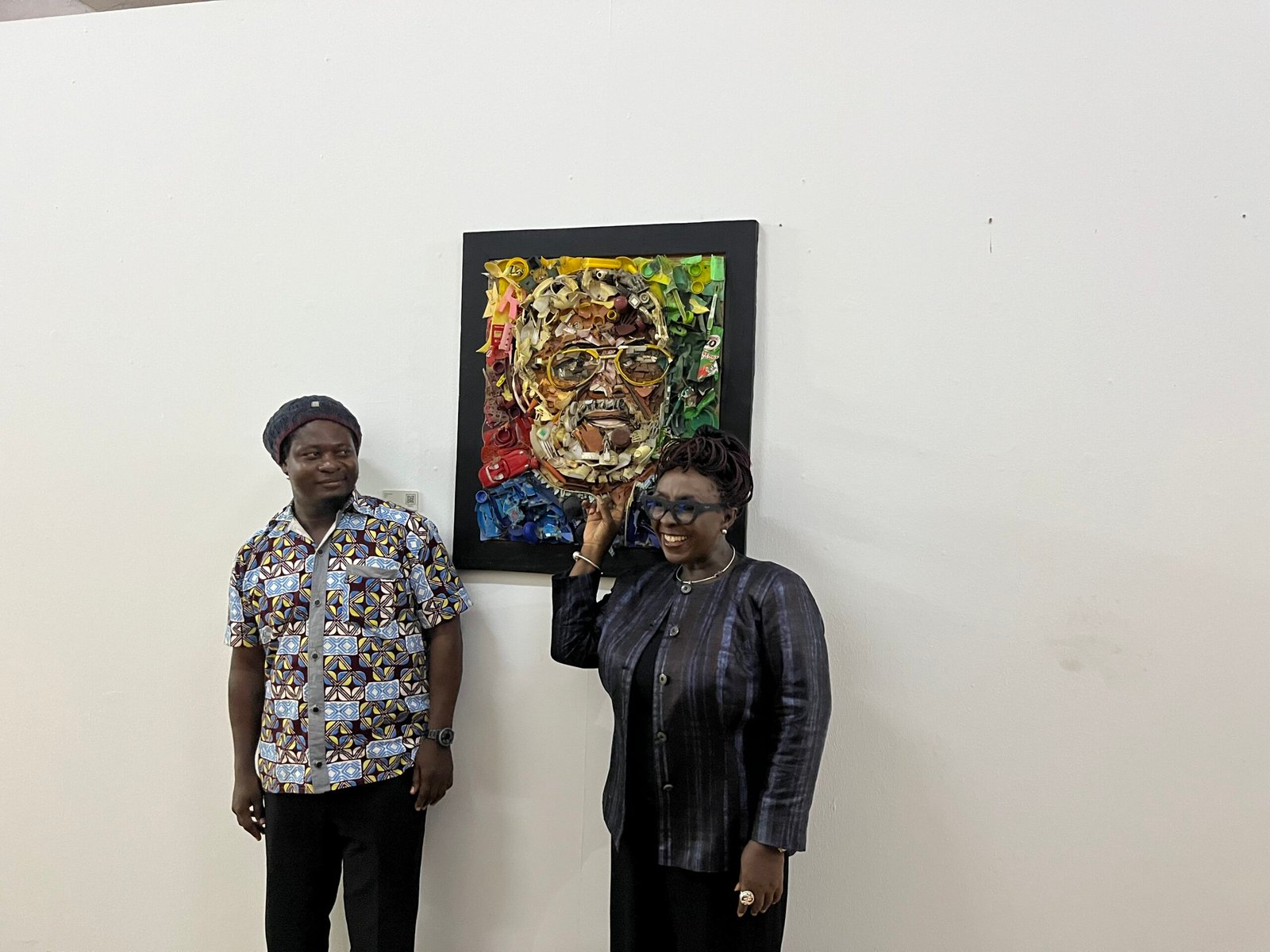News
‘Echoes of the Landfill’ exhibition underway to create awareness on sanitation

The Museum of Science and Technology (MST) last Thursday launched an arts exhibition in Accra to mark World Environment Day.
The exhibition themed; “Echoes of the Landfill,” displayed artistic paintings made from plastic waste materials serving as a creative protest and public education tool to raise awareness.
The Echoes of the Landfill exhibition will remain open to the public until July 5, with free admission. Schools, art enthusiasts, and the general public are encouraged to visit and engage with the artistic call for environmental awareness and action.
The exhibition, a joint effort between MST, ArtfullyYours, and Bee Arthur Creative Productions, brought together six environmentally conscious Ghanaian artists, including Obed Addo, Beatrice Bee Arthur, Essilfie Banton, Andrea Ghia, and Salim.
Speaking at the launch, the Minister of Tourism, Culture and Creative Arts, Mrs Abla Dzifa Gomashie, highlighted the importance of recycling plastic waste or using it to create beautiful and artistic things, such as paintings.
She emphasised the vital role recycling and creative reuse of plastic waste play in building a more sustainable future.
She said by turning waste into art, we not only clean our surroundings but also give voice to powerful environmental messages.
The Head of MST, Mrs Akosua Buckman, stated that the museum launched the initiative to raise environmental awareness.
“The museum’s mandate is to transfer scientific knowledge and appropriate technology to the public through exhibitions, and this exhibition is a testament to that commitment,” she asserted.
According to Ms Arthur, the paintings feature installations made from salvaged materials, including fishing nets and plastic waste.
By Cecilia Yada Lagba
News
Man sentenced to 25 years for robbery at Manso Akwasiso

A 30-year-old man has been sentenced to 25 years imprisonment with hard labour by the Bekwai Circuit Court for his role in a 2022 robbery at a mining site at Manso Akwasiso in the Ashanti South Region.
The convict, Dominic Ofori, also known as Fanta, was arrested on 16th February 2026 after years on the run. He pleaded guilty before the Bekwai Circuit Court to robbery contrary to Section 149 of the Criminal Offences Act, 1960 Act 29, and was accordingly sentenced to 25 years imprisonment with hard labour.
On March 20, 2022, the Manso Adubia District Police received intelligence that a group of armed men from Manso Abodom were planning to attack a mining site at Manso Akwasiso to rob the owner of gold concentrate. Acting on the information, police mounted a coordinated operation and laid an ambush at the site.
At about 5:30 pm the same day, four-armed men arrived at the site, fired indiscriminately, and robbed the miners of their gold concentrate. The police team on surveillance intervened, resulting in an exchange of gunfire.
Three of the suspects, Abu Abubakar, Musah Latif, and Gideon Takyi, sustained gunshot wounds and were pronounced dead on arrival at St Martins Catholic Hospital at Agroyesum. Dominic Ofori escaped at the time but was later arrested and put before the court.
The Ashanti South Regional Police Command has assured the public of its continued commitment to combating violent crimes and bringing offenders to justice.
News
Ashanti police arrest man for publishing false news on TikTok

The Ashanti Regional Police Command has arrested 45-year-old Isaac Boafo, also known as “Duabo King,” for allegedly publishing false news intended to cause fear and panic.
Police said the arrest follows a viral TikTok video in which Boafo claimed that four officers at the Central Police Station in Kumasi engaged in inappropriate conduct with commercial sex workers during night patrols in Asafo.
Officers from the Police Intelligence Directorate (Ashanti Region) apprehended Boafo after receiving intelligence about the video.
During questioning, he admitted to creating the video to attract views and engagement online, and acknowledged that he could not prove the allegations.
Boafo also admitted making comments about the President of the Republic for content purposes and could not defend those statements.
He has been formally charged and is in detention as investigations continue.
The Ashanti Regional Police have warned the public against publishing or sharing false information on social media, noting that such acts can cause fear, panic, and damage reputations.
They said anyone found engaging in similar conduct will face legal action.
By: Jacob Aggrey














